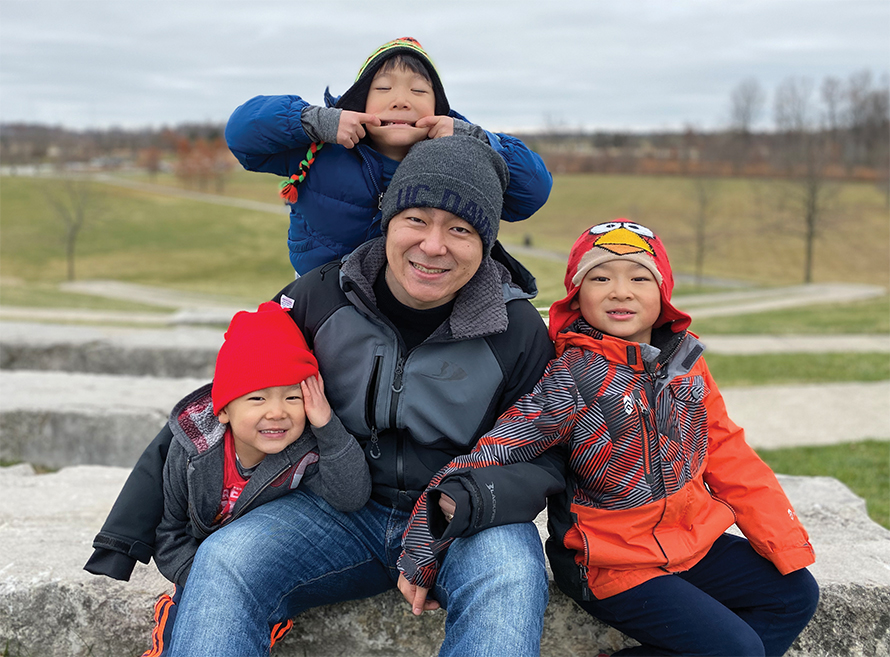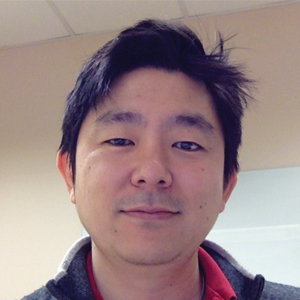‘The five love languages’
in science mentoring
The five love languages are a way to think about how we communicate appreciation to those around us. Developed by Gary Chapman, a speaker and counselor who has outlined their uses in a series of books, they are:
- Words of affirmation.
- Quality time.
- Acts of service.
- Receiving gifts.
- Physical contact.
They have transformed marriages, helped adults communicate love to their children and students, and improved how people express thanks to co-workers. Don’t believe me? Try asking Mr. Google, and you’ll find personal accounts extolling their authenticity. As for me, they saved my marriage and helped me become a better father and friend. In the past, I let work consume all my thoughts, time and energy. The love languages showed me how hurtful this could be to my wife and sons, who value my immediate presence. I now make it to every school performance and come home for dinner with my family. They notice and appreciate these efforts.
I believe the love languages have a place in all human relationships and should play a role in how we communicate as mentors and mentees. I’m not anything close to an expert, but I have both given and received mentorship in the sciences. I recently started my first faculty position, and as I make my transition from trainee to trainer, I want to provide examples of how the love languages might be used. My goal is to start a conversation about how they can play a positive role in the mentorship experience.
The connection between a mentor and mentee can be a multifaceted mix of our other personal and professional interactions. It resembles the relationship between a parent and child, teacher and student, and employer and employee and exists beyond age, gender and genetics. The mentor–mentee relationship therefore follows its own rules regarding communication.
As Mr. Chapman will tell you, we all express and receive the five languages in imperfect ratios. Some mean more to us than others. Speak our valued languages to us, and we feel gratitude. Starve us of these languages, and we feel malnourished. Academic science is built on the mentor–mentee relationship. The mentor and mentee therefore must use all of their skills in scientific observation to identify each other’s love language values to push the training experience forward.
Here are some examples from my experience.
Words of affirmation communicate empathy and caring
The mentor might support the mentee with celebratory compliments after achievements or encouraging words at stressful times. The mentee can say thank you after personal meetings or indicate respect by asking the mentor’s opinion on a topic or experiment. I am a father of three, and my spouse is also a working professional. Just before I started my new position, my postdoc mentor Judith Kimble told me she admired how I balance my scientific career with my family life. The thought of that comment supports me as I establish a new lab and home in Indiana.
Quality time is giving someone your complete attention
The mentor and mentee can share quality time during one-on-one meetings or when drafting manuscripts. When both make an effort to make the time productive, they show each other that their efforts are not wasted. Marvin Wickens, another mentor from my postdoc, insisted that we sit down and chat right before I left for my faculty job. The hourlong private talk was filled with reminiscing, personal commentary and professional advice. I left knowing that he believed I could succeed in this next phase of my career.

Acts of service demonstrate caring
Mentors may trust the mentee with responsibility, such as speaking at a conference on their behalf. Mentees may do a task requested by the mentor. Each might make a point of attending an event that is important to the other. When I was in veterinary school, my research mentor, Thomas North, attended all my summer research presentations. Many of them were cringeworthy, but he always remarked on at least one highlight from my talk. And at that time, highlights were few and far between.
Receiving gifts can include group celebrations or sharing food. Gifts do not need to cost much to mean something. Mentees can write thank you notes to their mentors for recommendation letters. My Ph.D. mentor, Steve Harrison, bought me a Kit Kat candy bar after my first thesis committee meeting. I still buy him a Kit Kat whenever I see him.
Physical touch can be problematic in academic or professional settings
While many forms of touch may be unwanted or are unacceptable in the workplace, both mentors and mentees can work to make eye contact and exchange a handshake or a smile in the hallway. During my early days in graduate school, I worked closely with Ethan Settembre, a postdoc with Harrison, before he left for a job in industry. He came back for my thesis defense and shook my hand, an act that confirmed I had become a full-fledged scientist.
Every scientist has mentorship stories that are infused with the love languages. When I have stormy days, I look back on the events described above. I hope to share similar experiences with my mentees and future mentors in this next phase of my career.
Enjoy reading ASBMB Today?
Become a member to receive the print edition four times a year and the digital edition monthly.
Learn moreFeatured jobs
from the ASBMB career center
Get the latest from ASBMB Today
Enter your email address, and we’ll send you a weekly email with recent articles, interviews and more.
Latest in Opinions
Opinions highlights or most popular articles

Women’s health cannot leave rare diseases behind
A physician living with lymphangioleiomyomatosis and a basic scientist explain why patient-driven, trial-ready research is essential to turning momentum into meaningful progress.

Making my spicy brain work for me
Researcher Reid Blanchett reflects on her journey navigating mental health struggles through graduate school. She found a new path in bioinformatics, proving that science can be flexible, forgiving and full of second chances.

The tortoise wins: How slowing down saved my Ph.D.
Graduate student Amy Bounds reflects on how slowing down in the lab not only improved her relationship with work but also made her a more productive scientist.

How pediatric cataracts shaped my scientific journey
Undergraduate student Grace Jones shares how she transformed her childhood cataract diagnosis into a scientific purpose. She explores how biochemistry can bring a clearer vision to others, and how personal history can shape discovery.

Debugging my code and teaching with ChatGPT
AI tools like ChatGPT have changed the way an assistant professor teaches and does research. But, he asserts that real growth still comes from struggle, and educators must help students use AI wisely — as scaffolds, not shortcuts.

AI in the lab: The power of smarter questions
An assistant professor discusses AI's evolution from a buzzword to a trusted research partner. It helps streamline reviews, troubleshoot code, save time and spark ideas, but its success relies on combining AI with expertise and critical thinking.

